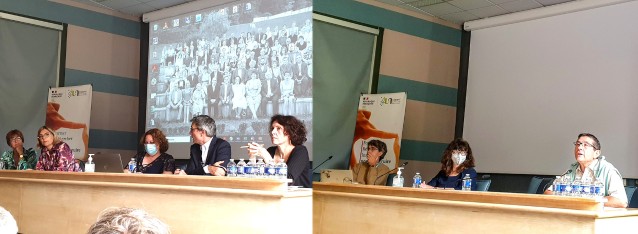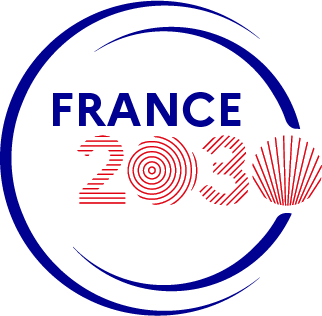
On Friday, July 1st, 2022, the auditorium of the University of Pau and Pays de l’Adour presidency building hosted the “Partnership Research and Knowledge Transfer” day of the TREE laboratory (Energy and Environmental Transitions). Directed by Xavier Arnauld de Sartre, TREE is a joint UPPA/CNRS research unit bringing together public law, private law, economics, geography, planning and sociology.
At the initiative of Christophe Derail, UPPA’s vice-president in charge of Partnership and Innovation, these events aim at presenting the laboratory and assessing the current state of partnership research. They also provide an opportunity to introduce researchers to the various mechanisms that can help them to finance their knowledge transfer and business creation projects (BPIFrance, CNRS/UPPA, SATT, Hélioparc technology park).
Evelyne Robert, project manager of the regional research network TESNA, and Virginie Buil, operational director of ISIFoR Carnot Institute, presented the scientific context in which TREE operates.
Three partners of the laboratory testified to the usefulness of such research partnerships: Céline Vautrelle, regional director of Enedis Pyrénées-Landes (legal and sociological issues related to the installation of electric vehicle charging stations in private homes), Patrick Chauvin, director of sustainable development and waste of the Agglo Pau Béarn Pyrénées authority, and Thibault Eudier, founder of the start-up E-Taranis (CIFRE thesis "Energy transition and the integration of energy law into the hierarchy of urban planning norms" ). Alice Moulène Dauba, operational director of the E2S UPPA MOVE research chair, moderated this round table.
“The creation of start-ups from research is possible, even in the human and social sciences,” enthused Christophe Derail. Maria-Teresa Maiullari-Pontois, head of research valorization at CNRS, emphasized that although they are less important, projects in the humanities and social sciences have a 100% success rate in the CNRS Innovation call for projects.
